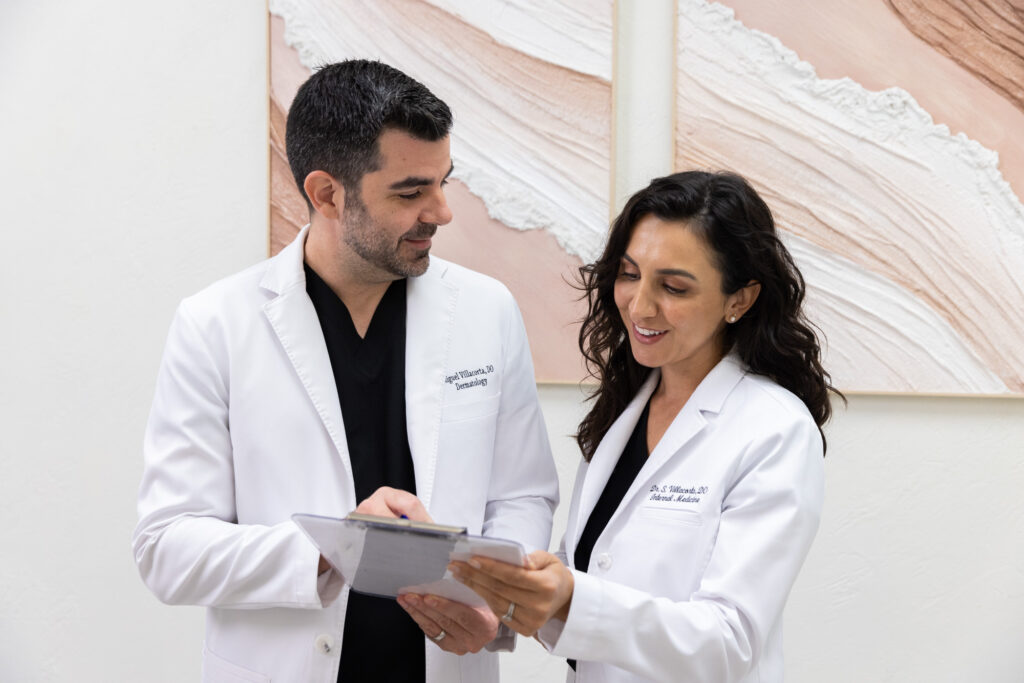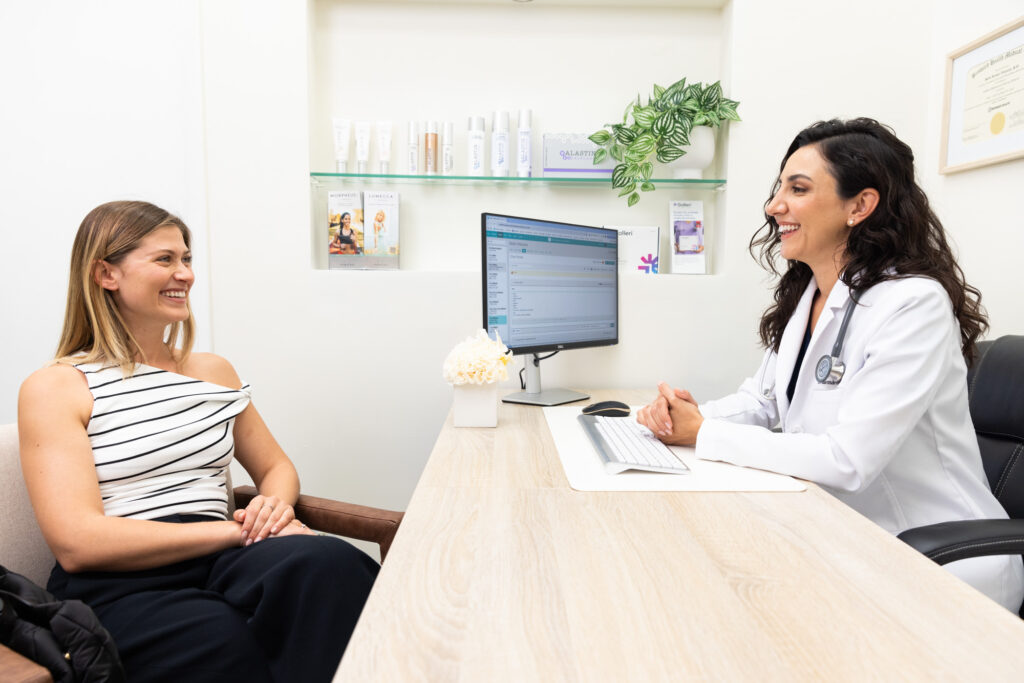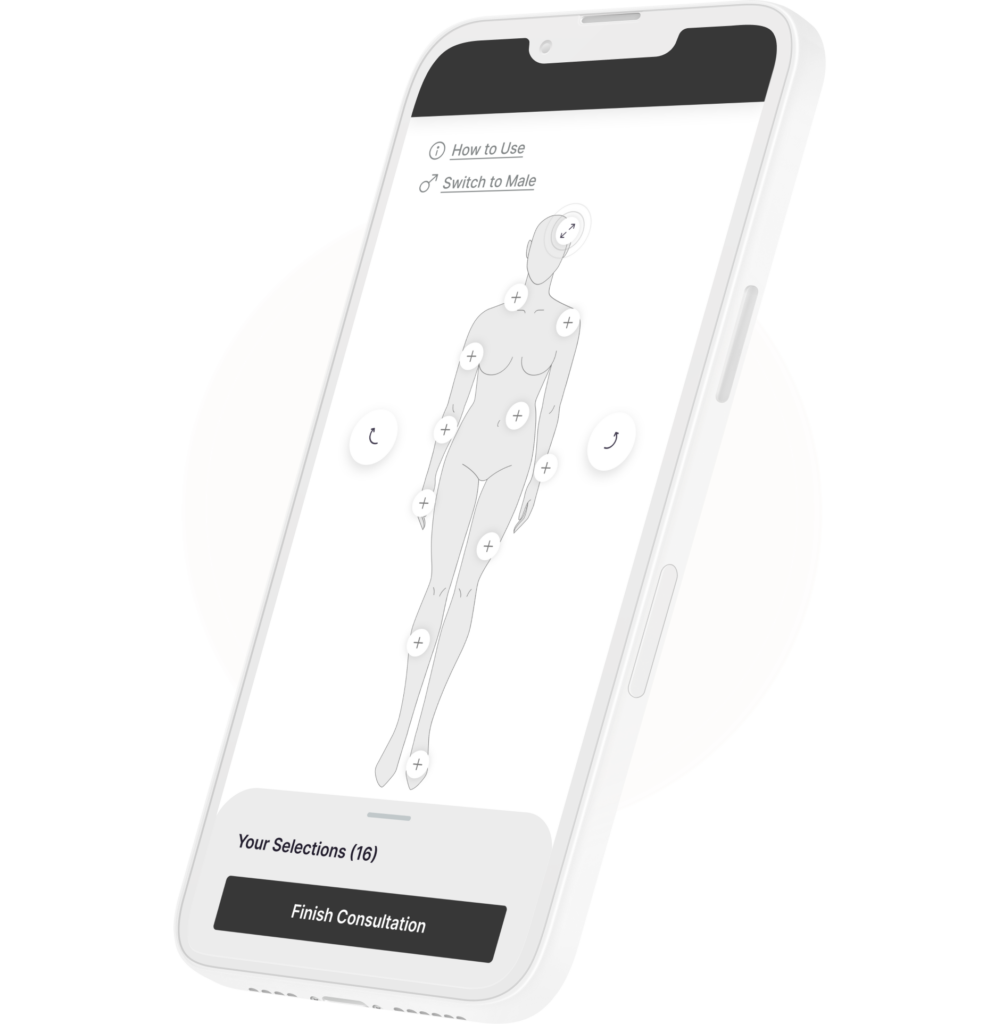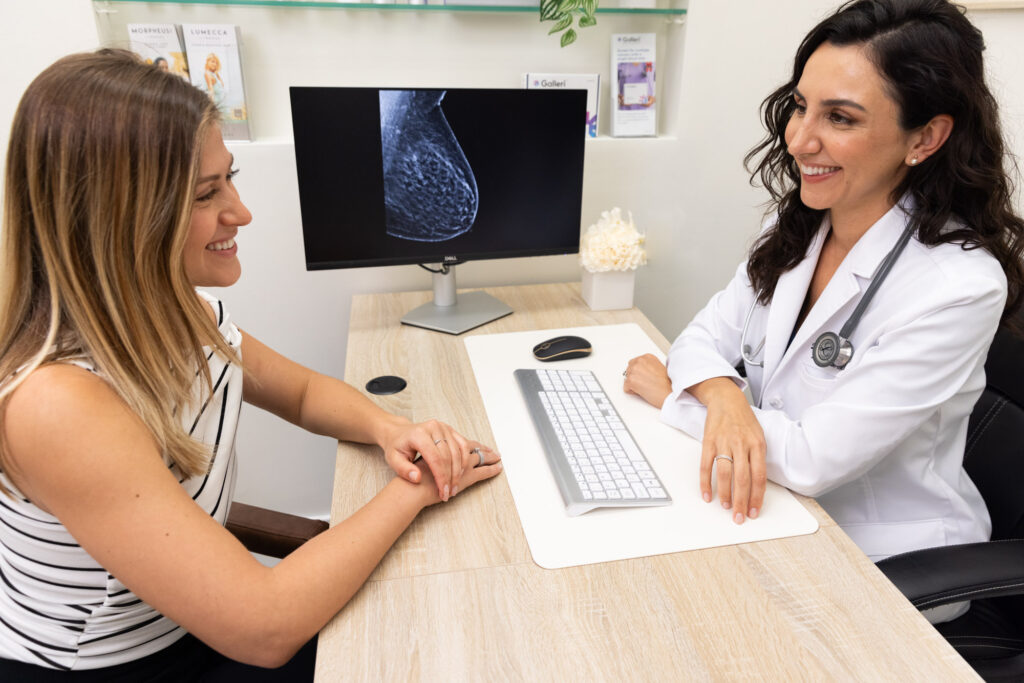
Studies show that most American women over the age of 40—59%, in fact—don’t get annual mammograms. 23% of them have never been screened for breast cancer.
Doctors don’t recommend annual breast exams without reason. Catching breast cancer and other potential health issues as early as possible gives you more treatment options.
Treating breast cancer in its early stages isn’t just an easier experience, but also maximizes your treatments’ success. That’s why the survival rate is over 5 years for 99% of patients diagnosed and treated for localized breast cancer.
The earlier, the better.
In honor of Breast Cancer Awareness Month, Galt Dermatology & Concierge Medicine’s doctors are answering our patients’ most common questions about screenings, interpreting your results, and planning your next steps.
How often should I see a women’s care specialist?
Generally, between the ages of 21 and 39, you should see your doctor for an in-office breast exam every 1 to 3 years unless you have had past abnormal results, family history, or are having symptoms. After the age of 40, you should come in for annual breast cancer screenings, as the risk of developing cancer increases with age.
We recommend that women between the ages of 21 and 65 schedule a pap smear—a cervical cancer screening—every 3 to 5 years unless they are having symptoms or have had previously abnormal pap smears. Patients above the age of 65 may not require as frequent pap smears if their previous results haven’t shown abnormalities. However, this varies and depends on the patient’s lifestyle and preferences.
All of this being said, your doctor may recommend more frequent exams depending on your specific situation—especially if you have a family history of breast or cervical cancer.
Schedule Your Discovery Visit to Get Started
How do I find a reputable women’s health clinic?

Being able to openly discuss your private health concerns with your doctor is essential. Beyond researching a doctor’s medical experience and qualifications, explore their website to learn more about their mission.
Do they go beyond standardized, reactive care and offer personalized, preventative solutions? Do they offer clear, upfront pricing? Do they prioritize patient education and offer helpful resources like newsletters, treatment planning tools, and blogs?
When searching for a women’s health specialist in Fort Lauderdale, remember that they should act as your partner. While expertise is important, compassion, trust, and respect are, too.
→ Get the Complete Guide to Finding a Women’s Health Clinic in Fort Lauderdale
Can I perform a self-exam instead of going to the doctor?
In honor of Breast Cancer Awareness Month, it’s important to emphasize that self-exams can play a role in early detection. However, they are not a substitute for in-office breast cancer screenings and mammograms.
Performing monthly self-exams can help you identify abnormalities early on, but you shouldn’t rely on them alone, as professional exams can detect less noticeable changes.
How do I perform a self-exam?
Start by removing your clothing and visually inspecting your breasts in the mirror. Note any changes in your breasts’ size, shape, and skin texture, including the nipples.
Then, stand with one arm behind your head and use your fingers to move in circular motions across your breast—from top to bottom, up to your armpits—and repeat this process lying down. If you notice any tenderness or changes in your breasts’ appearance, it’s important to contact your doctor and bring them to their attention.
I don’t have a family history of breast cancer. Do I still need annual exams?
Yes. Studies show that most women who develop breast cancer don’t have a family history of the disease. That’s why we recommend routine screenings for everyone.
What should I expect from a breast cancer screening?
When you come to Galt Dermatology & Concierge Medicine for a breast cancer screening, we’ll start by discussing your medical history and lifestyle to identify any risk factors. Then, we’ll help you get comfortable in a private treatment room before performing a clinical breast exam (CBE).
During your CBE, your doctor will perform a visual inspection and physical examination, noting any abnormalities in your breasts’ shape, size, skin texture, and tenderness. Here, we’ll also walk you through exactly how to perform a self-exam at home.
Depending on our findings from your CBE (and your risk assessments), we’ll determine which—if any—further tests you need, including MRIs, mammograms, or ultrasounds.
→ Learn More About What to Expect From a Breast Cancer Screening in Fort Lauderdale
How do I make sense of my screening results?
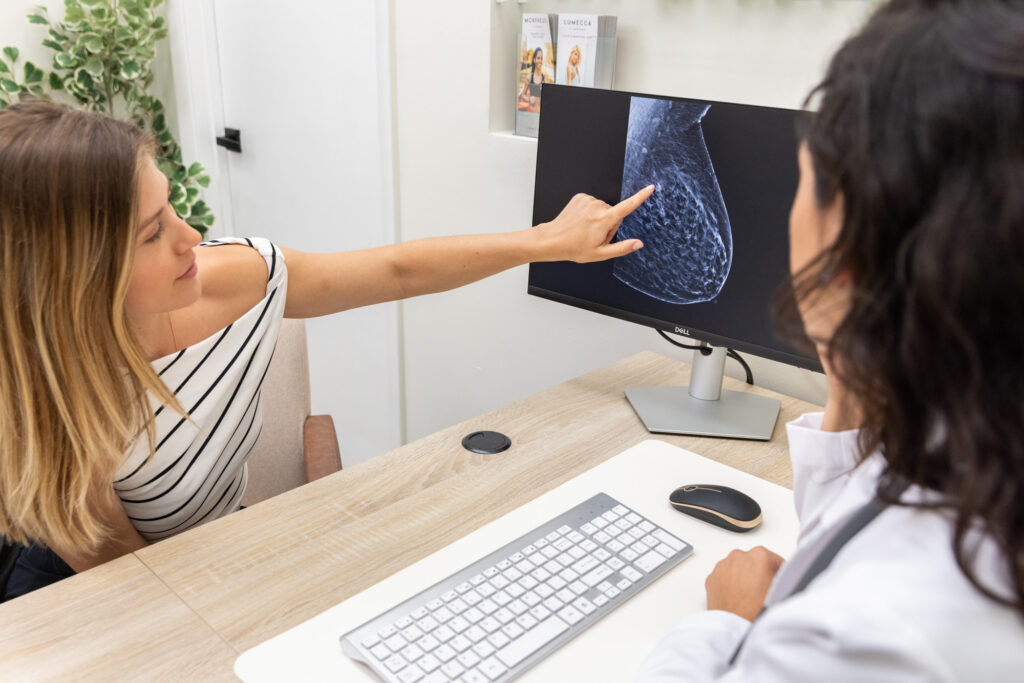
This Breast Cancer Awareness Month, we want to emphasize the importance of understanding your results, as it’s the first step to effective treatment. Our doctors always take the time to explain what your results mean, whether you received an ultrasound, mammogram, MRI, or biopsy.
After thoroughly analyzing your results, we always take the time to sit down with you to review them—line by line—and answer any questions you may have. We may also offer to consult with a board-certified breast radiologist who can re-evaluate the images and provide a second opinion.
If your results are “normal” or negative, your test did not detect any abnormalities, so you can simply return for your next routine breast exam as usual. Benign findings refer to non-cancerous changes, such as cysts, which we may recommend keeping an eye on.
Suspicious or abnormal results indicate abnormalities, which may require further testing. Positive or malignant findings mean that cancer cells are present, and we’ll recommend further testing to determine the type and stage of cancer to inform your treatment plan.
No matter your results, rest assured that our doctors are here to guide you through your next steps, including preventative measures (not solely reactive treatments).
How can I lower the risk of developing breast cancer?
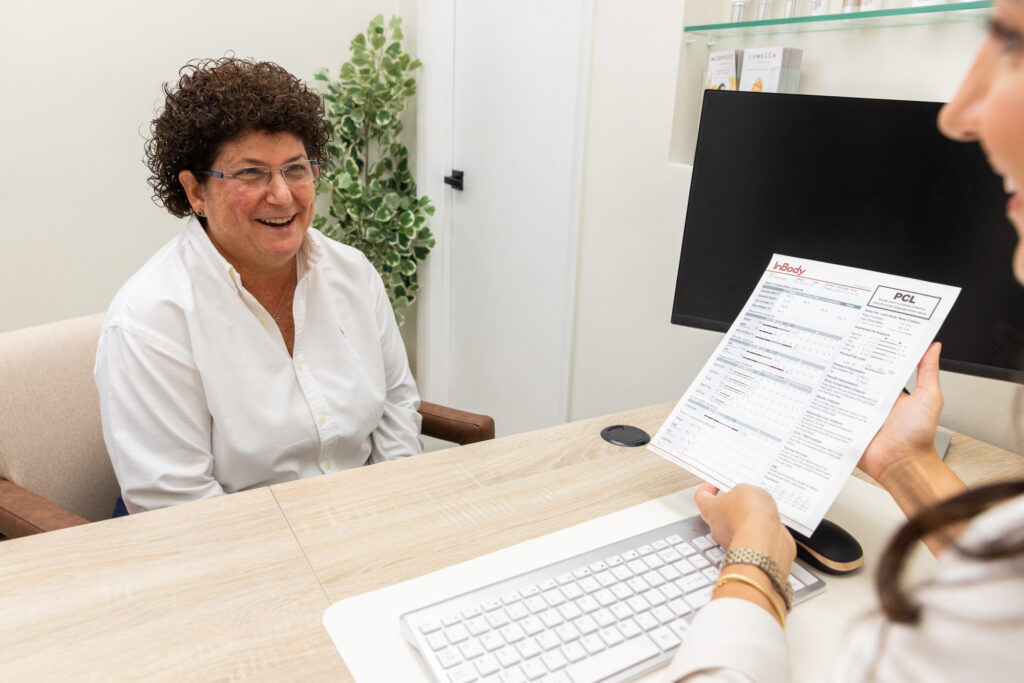
While there is no guaranteed way to prevent breast cancer, there are some lifestyle changes you can make to reduce your risk. That’s why our approach to women’s care is completely personalized.
→ Learn More About Seeing a Concierge Doctor in Fort Lauderdale
Some lifestyle changes we may recommend include:
- Breast feeding (if possible)
- Limiting your alcohol intake
- Maintaining a healthy weight → Learn how medical weight loss can help
Remember, our doctors also offer telemedicine in Fort Lauderdale, so you can always meet with us virtually to discuss how to improve your habits at home. In light of Breast Cancer Awareness Month, we’re continuing to raise the bar for making the care you deserve convenient.
What are my options for treating breast cancer?
As we’ve mentioned, the earlier you catch cancer, the more—and less invasive—treatment options you have. Different kinds and stages of breast cancer require different treatments, which may include:
- Biological therapy to strengthen your immune response
- Chemotherapy to kill or shrink cancerous cells
- Hormone replacement therapy (HRT) to cut off cancer cells’ vital resources
- Medications to weaken cancer cells (including bone-strengthening drugs or “bisphosphonates”)
- Radiation therapy to kill cancer through energy rays
- Surgical removal
In some cases, your doctor may recommend completing a round of chemotherapy or HRT before surgery, as these treatments shrink cancer cells and make them easier to remove.
What are the stages of breast cancer?
As we observe Breast Cancer Awareness Month, it’s important to understand the 5 stages of breast cancer, which range from 0 to 4. Higher numbers indicate more advanced cancers, and each stage reflects the size of the tumor and how far the cancer has spread.
Stage 0: Known as non-invasive or “in situ” breast cancer, this stage includes conditions such as Ductal Carcinoma In Situ (DCIS), where abnormal cells are present but confined within the milk ducts and have not spread to nearby breast tissue.
Stage I: Early-stage invasive breast cancer refers to a small cancerous growth (under 2 cm in size) that has only spread to a small area and can be further divided into:
Stage IA: The tumor has not spread beyond the breast.
Stage IB: Small clusters of cancer cells are found in lymph nodes, even if no tumor is found in the breast, or the tumor is 2 cm or smaller and there are small clusters of cancer cells in the lymph nodes.
Stage II: Invasive breast cancer that has grown between 2 and 5 cm that may have spread to nearby lymph nodes, or is larger than 5 cm without spreading to the lymph nodes. Depending on the tumor’s size and lymph node involvement, this can be further distinguished into Stage IIA or IIB.
Stage IIA: Either no tumor is found in the breast or the tumor is 2 to 5 cm in size, with or without small lymph node involvement.
Stage IIB: The tumor is larger than 5 cm but has not spread to nearby lymph nodes, or the tumor is between 2 and 5 cm with cancerous spread to nearby lymph nodes.
Stage III: Referred to as “locally advanced” breast cancer, stage III cancers can be further divided into:
Stage IIIA: The tumor may be larger than 5 cm and spread to nearby lymph nodes, which may clump together or stick to other structures.
Stage IIIB: Cancer has spread to the chest wall or skin, possibly causing swelling or ulceration, with potential lymph node involvement.
Stage IIIC: More extensive lymph node involvement, possibly in the area above or below the collarbone or near the breastbone.
Stage IV: Known as metastatic breast cancer, this stage indicates that cancer has spread beyond the breast and nearby lymph nodes to areas such as the bones, lungs, liver, or brain.
Doctors Invested in You
Our physicians don’t just see you as just another patient—we see you for the unique individual you are. Connecting with our patients is why we love what we do, and taking the time to truly understand your struggles and aspirations is vital to helping you live your happiest, healthiest life.
Meet Dr. Stella Villacorta

After immigrating from a small town in Montenegro to the United States, 5-year-old Dr. Stella Villacorta set off to achieve her dream of becoming a physician. Her passion and drive propelled her through the University of Loyola Chicago to Broward Health Medical Center.
After completing nutritional training at Stanford University, Dr. Villacorta decided to integrate her personal ethos into her career. At Galt Dermatology & Concierge Medicine, she serves as a dedicated partner to her patients—prioritizing lifestyle modifications and groundbreaking preventative care on all fronts.
Having battled breast cancer herself, Dr. Villacorta is dedicated to educating women from all walks of life on the importance of preventative care year-round, not just during Breast Cancer Awareness Month. No matter your age, background, or lifestyle, you deserve access to first-class health care.
Awareness saves lives. That’s why education is at the heart of our personalized approach.
We’ve diagnosed and treated more than 300 cancers, served over 1,000 patients, and completed more than 2,500 appointments. And our work is far from finished.
We’re Transforming Healthcare to Transform Lives
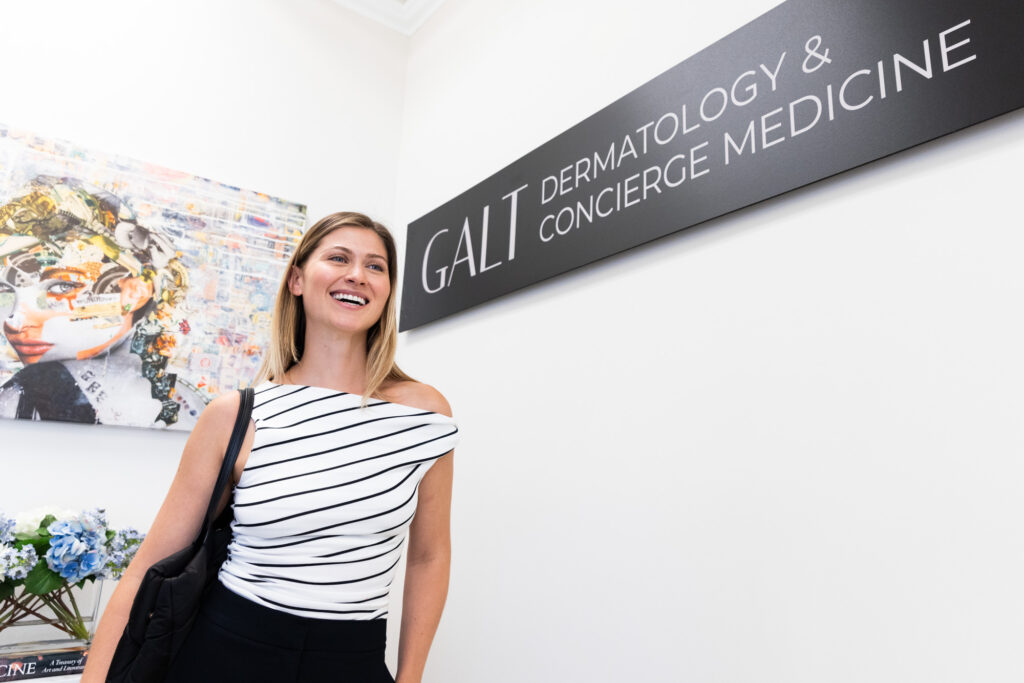
At Galt Dermatology & Concierge Medicine, you’re always our top priority. We’re committed to providing the healthcare experience you deserve—one that’s transparent, convenient, and personalized. If you’re ready to clear the path to the happiest, healthiest version of yourself, contact us today!
Start Building Your Treatment Plan
Want to learn more about how concierge medicine in Fort Lauderdale works? Contact us to begin your journey on your terms, and don’t forget to sign up for our newsletter for more exclusive insights during Breast Cancer Awareness Month.
